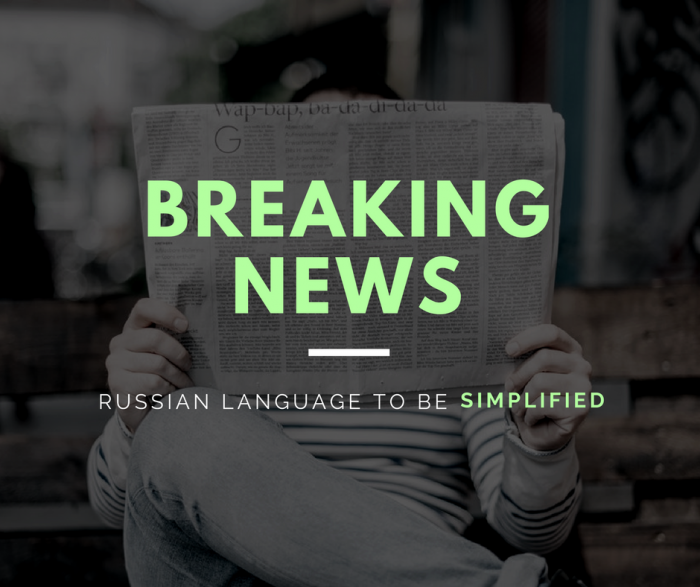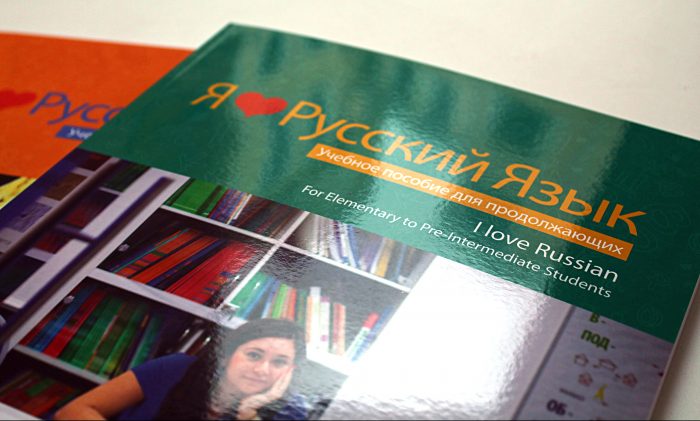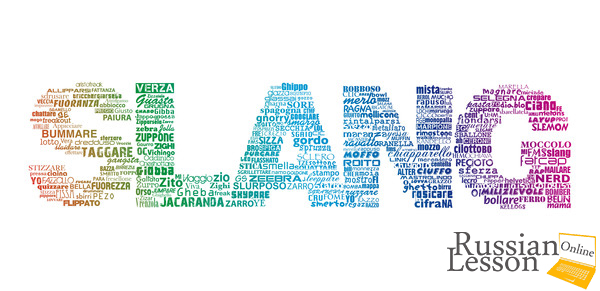
After years and years of courses, hours spent reading books about grammar and vocabulary and afternoons passed trying to understand how verbs of motion work in Russian… you now have to learn how Russians actually speak and their most used expressions!
In fact, one of the main reasons why a person should choose to learn a language abroad is learning how to sound natural and fluent. Language books often focus on the grammar part or tend to give more importance to building complicated sentence structures that in reality people do not use that much in their everyday’s life expressions. So, what about regular conversations? When your Russian friends tell you a crazy story about how they took a bath in the Neva in the middle of January to celebrate Epiphany, will you be able to tell the expressions of your astonishment, or you will just bubble something and stare at them?
We have gathered a few useful Russian expressions that will be handy for you for your trip to Russia that will help you sound like a fluent Russian speaker!
Get used to this expression because you will hear it E V E R Y W H E R E. It literally means “nothing to oneself” but it is used to express surprise, and it can be used both in negative and in positive situations.
“Он мне купил новый телефон на день рождения!”
“Ничего себе!”
“He got me a new phone for my birthday!”
“Can’t believe this!”
“Ужаcно. Она бросила меня.”
“Ничего себе!”
“It’s awful. She dumped me.”
“Can’t believe this!”
Remember how you were supposed to respond to the icy bath story? That’s the right moment to use it.
Pay attention to this one. This is the tricky one. It literally means “Yes no, maybe”, so at first it will look like your friend has just given you 3 different answers, while this is not the case.
Don’t worry, this little guy doesn’t want to burn down the forest. This expression is used to say “Probably not” and it is very useful again in informal contexts and it will help you sound more natural.
Sooner or later (if you are like me) you will get lost somewhere (for example wandering the maze of the Hermitage, struggling to find the exit). This will be one of the most useful expressions to ask for directions and every native will be impressed by a foreigner using such a common Russian conversational expression! Then you should also try to understand the answer, but at least the first part of the conversation will be just fine.
“Вы не подскажете? Где выставка французского искусства?”
“Would you mind telling me where it is the French art exhibition?”
“Вы не подскажете, сколько сейчас градусов ниже нуля?” От “Операция Ы или новые приключения Шурика”, 1965, Леонид Иович Гайдай
“Would you mind telling me how many degrees below zero is it right now” From “Operation Y and Shurik’s Other Adventures”, 1965, by Leonid Gaidai
I can’t find a more literal translation than “Are you out of your mind?”, which is the exact equivalent of that expression. For every English speaker this is a blessing and again a nice way to sound more casual while you are speaking with your friends, so that you won’t just repeat “Что?” “Что?” “Что?” to express that you are surprised!
Example:
“Почему ты добавил пасту в борщ? Ты с ума сошёл??”
“Why did you add some pasta to the Borsh? Are you out of your mind??”
I was so relieved when I discovered this little expression because I was finally able to avoid repeating “конечно” every 5 seconds. It is very useful and simple, but at the same time it sounds a bit more formal.
“Чем обширнее эмоциональная память, тем больше в ней материала для внутреннего творчества, тем богаче и полнее творчество артиста. Это, я думаю, само собой понятно и не требует дальнейшего пояснения”, от “Работа актера над собой в творческом процессе переживания”, Константин Станиславский
“The more one expands the emotional memory, the more material one will get for internal creation, the richer and more complete will be the creation process of the artist. This, I think, goes without saying and it doesn’t need any further explanation” from the series “The Acting Books” by Konstantin Stanislavski
“Он уже ушел и нету денег в сейфе…само собой”
“He has already left and there is no money in the safe… it goes without saying”
After this vocabulary boost, you are ready to go out on the streets and impress your Russian friends! Now we just need to make sure to understand the rest of conversation. To make it easier, check also our latest articles Learn Russian with these 4 websites, Top 10 most difficult Russian words and Phrases for the super student!
If you are more curious about new Russian expressions, stay tuned on our Facebook page!

Students will be happy to learn that the Russian Government has today announced plans to make Russian language easier in an effort to simplify greater international engagement. …

In a previous post, we revealed that Russians don't really say “na zdarovje” when they toast. While the phrase has been popularised in English language media – and a lot of Russians will nod politely and clink glasses with you if you use it – it’s not something a native speaker would ever…

Improve your Russian while working as an expat? Mission possible! …

What could be a better way for Russian immersion than reading, especially when you read the books that you find interesting and that can give you a better idea of the culture of Russia? Co-founder of Liden & Denz, Walter Denz shares his experience on how reading Russian literature can improve your…

Learning a language is hard. Keeping it when you don't have classes is even harder. So this article is not about how to learn Russian, but how to maintain your Russian. …

Learning the Russian language can be a long, hard slog. Days, weeks, months spent poring over textbooks, attempting to understand the cases, crying over aspects, endeavouring to pronounce ы and щ. …

Many language learners desire to communicate well with native speakers of the language or those who speak it. I have always dreamt of talking more fluently and texting through social media with my Russian friends better. It is no exaggeration to say that good communication skill gives you an…

If you are already able to speak Russian, then congratulations! You are on a good way. But even if you are, let’s say, on level B2, you have probably been in situations with Russians, especially younger people, where you did not understand everything they said — either because they were speaking…